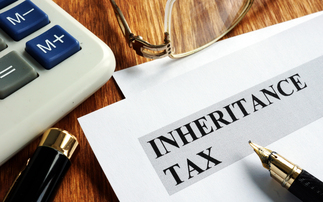The Pensions Regulator (TPR) has published its 2020 annual funding statement outlining how defined benefit schemes should approach forthcoming scheme valuations.
The 2020 annual funding statement highlights how schemes which follow its guidance can balance the impacts on employers while putting them in a stronger position to improve their funding positions.
The regulator said it had already issued guidance to support trustees and employers with the impact of Covid-19, but noted the additional guidance in the funding statement dealt with key issues in connection with covenant assessments and affordability, scheme funding positions, and designing recovery plans.
TPR chief executive Charles Counsell said: "At the end of December we were seeing a general improvement in funding levels, compared with the previous three years, but the situation now will be very different for many schemes due to the Covid-19 crisis. However, we don't yet know the full impact the crisis will have on the pensions landscape.
"What is clear is that Covid-19 is testing employers and trustees like never before and it is vital that they work together collaboratively. We are clear that the best support for a pension scheme is a strong employer and so we are here to support both groups in our role to ensure savers' retirements are protected."
He added: "It is vitally important for all schemes to follow our funding statement guidance, and the extra Covid-19 guidance we have issued and will regularly update, to strengthen their position for the tough times which lie ahead."
Expectations
TPR's annual funding statement sets out how it expects trustees and employers to approach their valuations and scheme funding in conjunction with their employers. The regulator said it is particularly relevant to those conducting valuations with effective dates between 22 September 2019 and 21 September 2020 (so-called tranche 15 schemes) and schemes reviewing their funding and risk strategies.
The statement is based on analysis conducted since the outbreak of Covid-19 and finds that the funding position of many defined benefit (DB) schemes that have low exposures to equity markets and good levels of hedging, should be in a stronger position than might be expected in the current climate.
It said if these risks were considered in an integrated risk management (IRM) framework, trustees should have contingency plans which the regulator expects to be implemented where possible. Where this was not the case, it said trustees and employers need to consider how far they may have strayed from their longer-term objective and develop strategies to put them back on course.
The regulator did admit, however, that March and April 2020 valuations will be challenging. It said many trustees will not have sufficient information to form a reliable view on long-term future returns from their scheme's investments and/or their employer's covenant and affordability.
As such, the regulator said that, where needed, trustees may consider delaying decisions about key assumptions until more clarity emerges. However, TPR expects schemes to proceed with as much of the preliminary valuation work as possible
TPR recognises the impact that Covid-19 will have had on some employers. Consistent with TPR's Covid-19 guidance, in agreeing to any reduction or suspension of deficit repair contributions, trustees should ensure that dividends and other forms of shareholder return are also suspended.
At the beginning of March, TPR launched the first stage of a major consultation on its revised code of practice for DB funding. The principles of this consultation remain valid but its closing date for submissions has been extended until 2 September.
Key principles
The regulator said the key principles behind its expectations were as follows:
- Trustees should consider obtaining independent specialist advice to support covenant assessment at a time when many employers will have been significantly affected.
- The current circumstances accentuate the importance of trustees working collaboratively with their employer.
- Trustees considering changing their valuation date should obtain and consider legal and actuarial advice.
- Trustees should use the valuation period to assess the market conditions and form a view on the long-term effects for their scheme.
- Where trustees agree to reduce or suspend DRCs, they should ensure that dividends and other forms of shareholder return are also suspended.
- When preparing recovery plans they should consider taking account of post valuation experience, especially the impact on the scheme's assets and liabilities of the significant changes in market conditions since the effective date of the valuation.
- Deficits should be recovered with a focus on the affordability of the sponsor while maintaining equitable treatment and balancing the sustainable growth of the employer
Read TPR's Annual Funding Statement 2020 here: https://www.thepensionsregulator.gov.uk/en/document-library/statements/annual-funding-statement-2020
Read the regulator's guidance on Covid-19 here: https://www.thepensionsregulator.gov.uk/en/covid-19-coronavirus-what-you-need-to-consider









